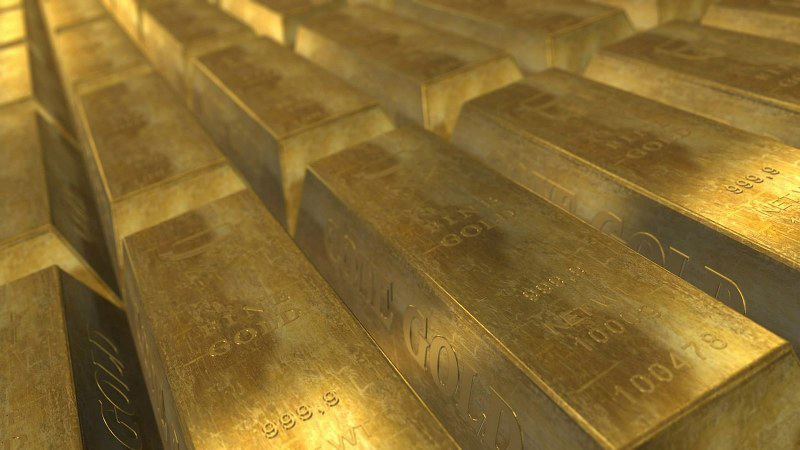
China's gold-buying spree triggers global price surge
Gold's value has historically surged during geopolitical and economic upheavals, and recent events like Russia's invasion of Ukraine and the conflict in Gaza have further boosted its price.
However, what sets this current surge apart is the role played by China. Chinese investors, disillusioned with real estate and stocks, have turned to the yellow metal, propelling its price to record highs surpassing $2,400 per ounce, reported the New York Times.
This trend has been reinforced by China's central bank, which has been steadily increasing its gold reserves while reducing its holdings of US debt.
Moreover, Chinese speculators are actively betting on further appreciation of gold.
China's dent in the gold market has grown substantially during this period, with prices surging nearly 50% since late 2022.
Gold has maintained an unusual upward trajectory despite typically unfavourable conditions such as higher interest rates and a strong US dollar.
Even after signals from the US Federal Reserve indicating prolonged higher interest rates, gold prices continued to rise.
This trend persists even as the US dollar strengthens against most other major currencies worldwide.
Gold prices have recently eased to near $2,300 per ounce, yet there's a prevailing sentiment that economic factors no longer solely dictate the gold market's dynamics. Instead, it's increasingly influenced by the preferences and actions of Chinese buyers and investors.
"China is unquestionably driving the price of gold," said Ross Norman, CEO of MetalsDaily, a precious-metals information platform based in London, according to the New York Time report.
Gold consumption in the country rose 6% in the first quarter from a year earlier, as per the China Gold Association. It came on the heels of a 9% rise last year, stated the report.
As traditional investment avenues showed lackluster performance, gold investment gained traction, particularly amid China's ongoing real estate crisis.
With limited alternative options, capital flowed into Chinese funds dealing in gold, and many young investors turned to acquiring small quantities of gold as an affordable investment strategy.
The People's Bank of China emerged as a major player in the gold market, steadily increasing its gold reserves for the 17th consecutive month in March.
In fact, it surpassed all other central banks in gold purchases last year, marking the most substantial increase in reserves in nearly five decades.
Beijing's motive behind accumulating gold is two fold: to diversify its reserve assets and reduce reliance on the US dollar.
This move aligns with China's gradual reduction of US treasury holdings over the past decade, with its holdings dropping from around $1.1 trillion in 2021 to approximately $775 billion as of March.
When China increased its gold holdings in the past, it bought domestically using yuan, the New York Times quoted Guan Tao, global chief economist at BOC International in Beijing, as saying.
This time, the bank is using foreign currencies to purchase gold, thereby decreasing its exposure to the US dollar and other currencies.
The decision to diversify comes in light of recent geopolitical events, such as the US freezing Russia's dollar holdings as part of sanctions against Moscow, prompting several central banks, including China's, to bolster their gold reserves.
Despite China's concerted efforts to accumulate gold, the metal constitutes only 4.6% of its foreign exchange reserves.
In contrast, India holds nearly double the proportion of its reserves in gold compared to China.
Support Our Journalism
We cannot do without you.. your contribution supports unbiased journalism
IBNS is not driven by any ism- not wokeism, not racism, not skewed secularism, not hyper right-wing or left liberal ideals, nor by any hardline religious beliefs or hyper nationalism. We want to serve you good old objective news, as they are. We do not judge or preach. We let people decide for themselves. We only try to present factual and well-sourced news.







